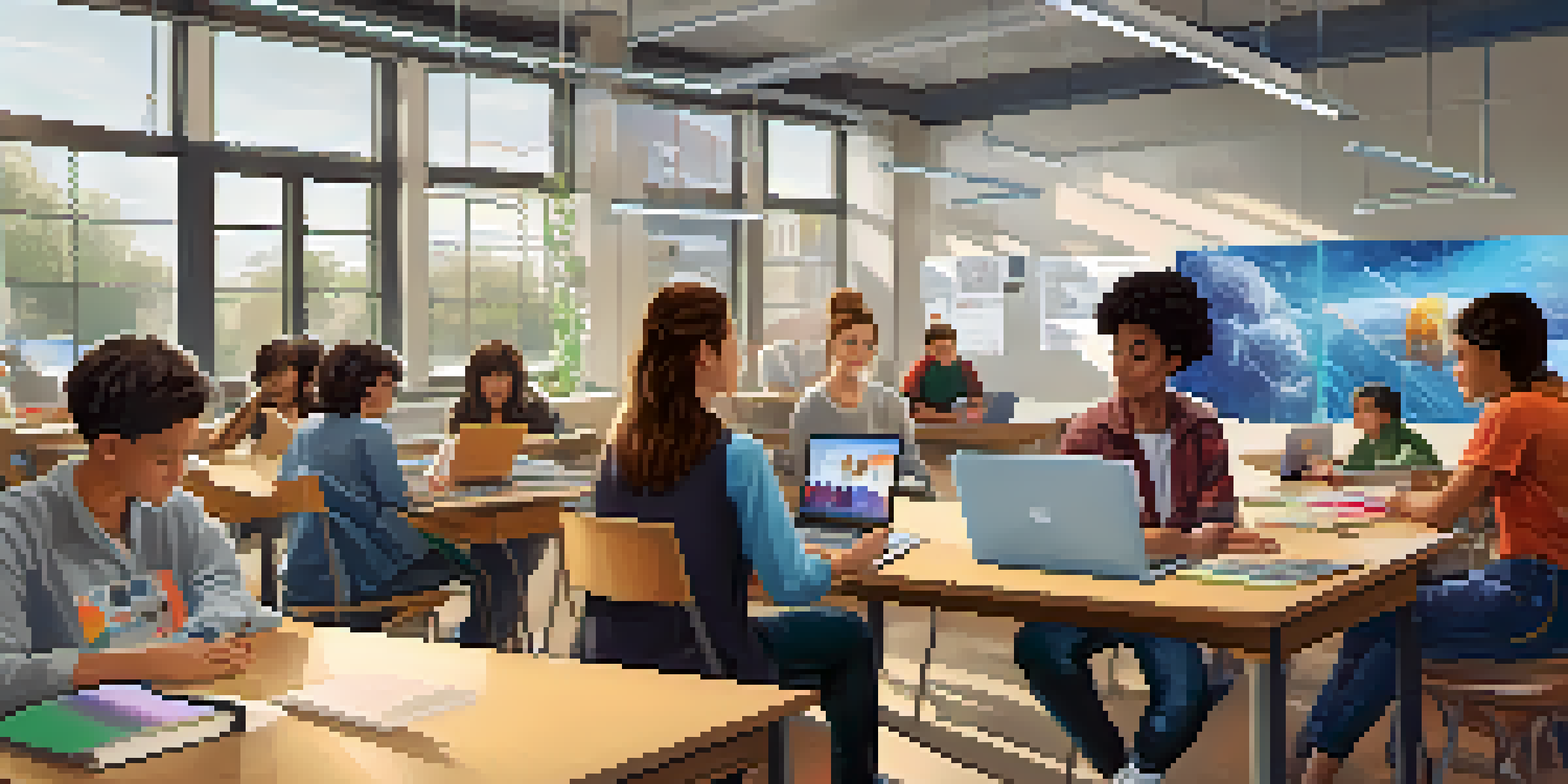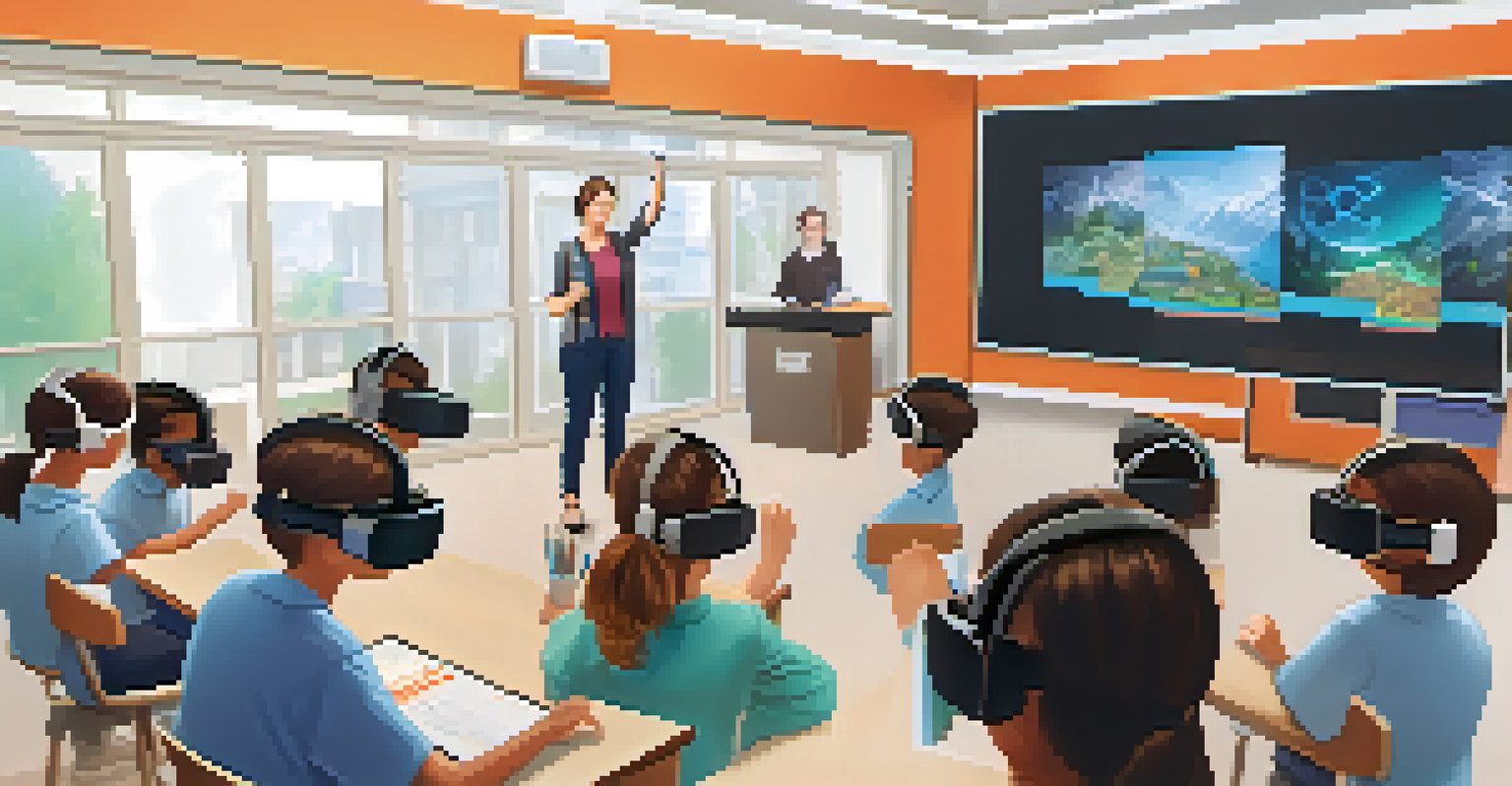AI in Education: Facilitating Real-World Problem Solving Skills

Understanding the Role of AI in Education Today
Artificial Intelligence (AI) is reshaping the educational landscape, making learning more personalized and efficient. By leveraging data analytics, AI can tailor experiences to meet individual needs, which is crucial for developing real-world problem-solving skills. For instance, platforms like Khan Academy use AI algorithms to assess student performance and adapt learning paths accordingly.
AI is the new electricity. Just as electricity transformed almost everything 100 years ago, AI is now transforming and reimagining entire industries.
This adaptability means that when students struggle with specific concepts, the system can provide additional resources and practice tailored to their unique challenges. Such targeted assistance not only enhances comprehension but also builds confidence in tackling complex problems. In this way, AI acts as a guide, leading students through their educational journeys.
Moreover, AI's ability to simulate real-world scenarios allows students to engage with practical challenges directly. This immersive experience helps bridge the gap between theoretical knowledge and practical application, making learning more relevant and impactful.
AI-Powered Tools for Enhancing Problem-Solving Skills
Various AI-powered tools are emerging that specifically focus on enhancing problem-solving skills among students. For example, platforms like Socratic employ AI to help students tackle homework problems by providing step-by-step explanations. This kind of support not only helps students find solutions but also encourages critical thinking and analytical skills.

Another innovative tool is ChatGPT, which can assist students by generating questions or scenarios that challenge their thinking. By engaging with such tools, learners can develop their reasoning skills in a safe environment, where making mistakes is part of the learning process. This interactive approach helps to cultivate resilience and adaptability, both essential traits for effective problem-solving.
AI Personalizes Learning Experiences
AI tailors educational content to individual student needs, enhancing engagement and problem-solving skills.
Furthermore, these tools often incorporate gamification elements, making learning more engaging. When students enjoy the process of solving problems, they are more likely to persevere through challenges and develop a lifelong love of learning.
The Importance of Collaborative Learning with AI
Collaboration is a key component of effective problem-solving, and AI can facilitate this process in educational settings. Through AI-driven platforms, students can work together on projects, share ideas, and brainstorm solutions in real time, regardless of their physical location. This not only enhances their communication skills but also exposes them to diverse perspectives.
The great benefit of AI is that it allows us to focus our time on higher-order thinking—problem-solving, creativity, and innovation.
For instance, virtual classrooms equipped with AI tools can connect students from different backgrounds, promoting cultural exchange and teamwork. Such environments encourage students to tackle complex problems collectively, mirroring real-world situations where collaboration is essential for success.
Additionally, AI can analyze group dynamics and suggest optimal team compositions based on individual strengths and weaknesses. This ensures that students are not only learning from the content but also from each other, fostering a sense of community and shared responsibility in problem-solving.
Real-World Applications of AI in Educational Settings
To fully appreciate AI's impact on education, it's essential to look at real-world applications that demonstrate its effectiveness. In many schools, AI systems are used to simulate real-life scenarios, providing students with hands-on experiences that mirror challenges they might face in their careers. For instance, business students can engage in simulations that require them to make strategic decisions based on market data.
These practical applications not only reinforce theoretical concepts but also help students develop critical thinking and decision-making skills. By working through these simulations, students learn to analyze information, weigh options, and consider the consequences of their actions, which are vital skills in any profession.
Collaboration Enhanced by AI Tools
AI-driven platforms facilitate collaborative learning, allowing students to share ideas and solve problems together.
Moreover, case studies from educational institutions show that students who engage with AI-driven learning tools often outperform their peers in traditional settings. This evidence underscores the importance of integrating AI into curricula to prepare students for the complexities of the modern workforce.
AI and Personalized Learning Experiences
Personalized learning is another area where AI shines, allowing educators to create customized learning experiences for each student. By analyzing a student's learning style and pace, AI can deliver content that matches their individual preferences. This tailored approach is particularly beneficial for developing problem-solving skills, as it ensures that students are engaged with material that resonates with them.
For example, a student struggling with math concepts can receive targeted exercises that build foundational skills before moving on to more complex problems. This step-by-step progression helps solidify understanding and boosts confidence, making students more willing to tackle challenging tasks.
Furthermore, by continuously assessing a student's progress, AI can adjust learning paths in real time, ensuring that no one is left behind. This dynamic adaptability not only fosters a supportive learning environment but also encourages students to take ownership of their learning journey.
Challenges and Ethical Considerations of AI in Education
While the potential benefits of AI in education are clear, it's essential to address the challenges and ethical considerations that come with it. One major concern is data privacy, as AI systems often require access to personal information to function effectively. Educators and institutions must ensure that they are transparent about data usage and implement robust security measures to protect student information.
Additionally, there is the risk of over-reliance on technology, which can undermine critical thinking if students become too accustomed to AI providing answers. It's crucial to strike a balance between leveraging AI tools and encouraging independent problem-solving skills. Educators should promote a culture of inquiry, where questioning and exploration are valued.
Real-World Applications of AI
AI simulates real-life scenarios in classrooms, helping students develop critical thinking and decision-making skills.
Lastly, equity in access to AI tools is another significant issue. Not all students have equal access to technology, which could exacerbate existing educational disparities. Ensuring that all students have the opportunity to benefit from AI-enhanced learning is vital for creating a more inclusive educational landscape.
The Future of AI in Education and Problem Solving
Looking ahead, the role of AI in education is poised to grow even further, particularly in developing problem-solving skills. As technology continues to advance, we can expect more sophisticated AI tools that provide deeper insights into student learning patterns. This evolution will enable educators to design even more personalized and effective learning experiences.
Moreover, as AI becomes more integrated into everyday life, teaching students how to leverage these tools responsibly will be crucial. Educational institutions will play a key role in preparing students not just to use AI, but to understand its implications and limitations. This understanding will empower them to become critical thinkers and informed decision-makers.

In essence, the future of education with AI looks promising, with the potential to equip students with the skills they need to tackle real-world challenges. By fostering an environment that embraces innovation and collaboration, we can prepare the next generation to thrive in an increasingly complex world.